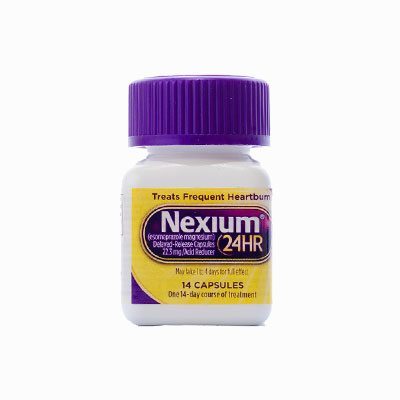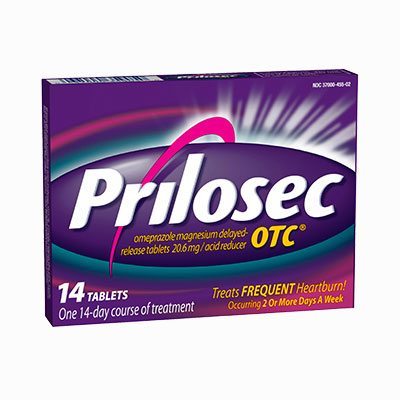Public Justice Petition for Changes to Proton Pump Inhibitor Labels
In a 2011 petition to the FDA, Public Citizen explained that proton pump inhibitors such as Nexium, Prilosec, and Prevacid were often being used for extended periods of time.
Public Citizen petitioned the FDA to require black box warning labels on all prescription PPIs to warn against serious side effects from long term use. The FDA ignored the petition for three years. In 2014, only after being sued by Public Citizen, the FDA finally updated the warning labels on these drugs.
Our lawyers are providing free, no obligation lawsuit evaluations for people who were injured by Nexium, Prilosec, and Prevacid.
Studies show Proton Pump Inhibitors are Linked to Serious Side Effects
Proton Pump Inhibitors (PPIs) are one of the most widely used classes of drugs in the United States, with 131 million prescriptions given out in 2013 alone. Some of the more popular PPIs include, Nexium (esomeprazole), Prevacid (lansoprazole), Prilosec (omeprazole), and their generic counterparts.
In the past several years, studies have been released that suggest long term use of PPIs can lead to increased risk of kidney injury and other serious health effects. In 2011, a research-based advocacy group, known as Public Citizen, petitioned the Food and Drug Administration (FDA) to add black box warnings and other safety information to the product labels on all PPIs currently on the market.
Public Citizen Petition for Black Box Warning Labels on Proton Pump Inhibitors
In a 2011 petition to the FDA, Public Citizen explained that proton pump inhibitors such as Nexium, Prilosec, and Prevacid were often being used for extended periods of time. The warning labels on the drugs did not provide enough information to deter people from using the drugs daily for weeks, months, and even years.
Studies showed that long term use of PPIs could lead to severe health issues, and the FDA-approved PPI labels do not mention these serious adverse effects, including the potential for developing dependence on the drugs.
Proton Pump Inhibitors are one of the most widely used classes of drugs in the United States, with 131 million prescriptions given out in 2013 alone, have been linked to cause many serious side effects.
Public Citizen petitioned the FDA to require black box warning labels on all prescription PPIs to warn against:
- Rebound acid hypersecretion risk: This is a risk associated with the dependence on the drug that can be formed in as little as four weeks of regular use.
- Fracture risk: Individuals who have taken PPIs for longer periods of time have seen an increased risk for osteoporosis-related fractures of the hip, wrist, and spine.
- Infection risk: Some studies have shown that PPI users have an increased risk of contracting Clostridium difficile (C. difficile)—a bacterial infection that causes diarrhea and community-acquired pneumonia. These symptoms have been seen with both short and long-term PPI use.
- Magnesium deficiency risk: PPI use has been associated with magnesium deficiencies, which can be fatal when the patient is taking other medications. Although the FDA recently placed this information on PPI labels, they decided not to insert black box warnings.

In addition to the requests for black box warnings, the petition asked that the FDA also require label changes to warn against risks from certain drug interactions, Vitamin B12 deficiency, and acute interstitial nephritis.
Furthermore, Public Citizen’s petition urged the FDA to distribute medication guides for patients—outlining these adverse effect warnings and providing alternatives to PPI use—when prescriptions are filled, and to request that the sponsors of all prescription PPI medications send a “Dear Doctor” letter to physicians and other providers.
Public Citizen Lawsuit Against the FDA
Despite Public Citizen’s efforts to petition the FDA to change the warning labels on all PPI medications and include medical risk information, the FDA neither granted nor denied the petition, and did nothing to update the warning labels on PPI drugs like Nexium, Prilosec, and Prevacid.
In April 2014, Public Citizen filed a lawsuit against the FDA on the grounds that the FDA acted unlawfully by withholding action on Public Citizen’s petition, and also filed an order requiring the FDA to act thereon.
In a statement issued by Public Citizen in this regard, the group expressed concern that the FDA took too long to initiate action. The consumer advocacy group noted that the actions initiated by the FDA are important and would contribute to making the products safer; however, the delay in issuing directives by the FDA has endangered the lives of millions of patients.
FDA Updates Warning Labels on Proton Pump Inhibitors
On October 31st 2014, the FDA both accepted and rejected parts of the 2011 petition for stronger warnings on PPI drugs. Changes that the FDA agreed to include:
- Labeling changes of all PPI products regarding risk of C. difficile-associated diarrhea and the risk of certain drug-drug interactions
- Labeling changes and addition of information regarding the risks of vitamin B12 deficiencies, acute interstitial nephritis and certain information regarding treatment for GERD
- Issuance of Medication Guides for certain prescription PPI products regarding certain safety risks
Although the FDA granted certain changes to the labeling of PPI medications, they rejected Public Citizen’s request for black box warnings on all of the medications. The agency also denied their requests for several other warnings to be added.
Risk of Chronic Kidney Disease from Proton Pump Inhibitors
These drugs are generally believed to be safe and millions of people are using them, but many studies have shown that the side effects caused by heartburn drugs and other proton pump inhibitors might increase the risk of contracting serious kidney problems such as Chronic Kidney Disease, as well as acute interstitial nephritis, and C. difficile.
According to Public Citizen, if the medical community and consumers were adequately informed of the potential link between PPIs and other serious injuries, a number of people might have avoided serious, life-threatening complications by limiting the use of these drugs or choosing an alternate method of treatment.
What are Nexium, Prilosec and Prevacid?
Nexium, Prilosec and Prevacid are known as Proton Pump Inhibitors, commonly referred to as PPI’s. These drugs treat heartburn by reducing the amount of stomach acid produced.
Consumers often take these drugs daily for extended periods of time, without any idea that they may have serious side effects, such as chronic kidney diseases and other serious kidney injuries.
The manufacturers of these drugs encourage regular use through aggressive advertising and do not provide adequate warnings about the potential health risks.



Nexium, Prilosec and Prevacid Lawsuits
Our lawyers are actively investigating lawsuits for kidney injuries caused by proton pump inhibitors. If you or a loved one suffered one of the following side effects after taking Nexium, Prilosec, or Prevacid, you may be eligible for financial compensation:
- Acute Interstitial Nephritis
- Acute Kidney Failure
- Clostridium Difficile (C. difficile)
- Dementia
- Fractures
Contact our Nexium lawyers, Prilosec lawyers, and Prevacid lawyers today for a free no obligation legal consultation.
Free Lawsuit Evaluation
Sources
- http://www.citizen.org/pressroom/pressroomredirect.cfm?ID=4324
- http://blogs.wsj.com/pharmalot/2014/11/04/fda-adds-warnings-to-heartburn-meds-three-years-after-a-request/
- http://www.citizen.org/documents/1964.pdf
- http://www.citizen.org/documents/Public-Citizen-FDA-PPI-Petition-Complaint.pdf
- http://archinte.jamanetwork.com/article.aspx?articleid=2481157

